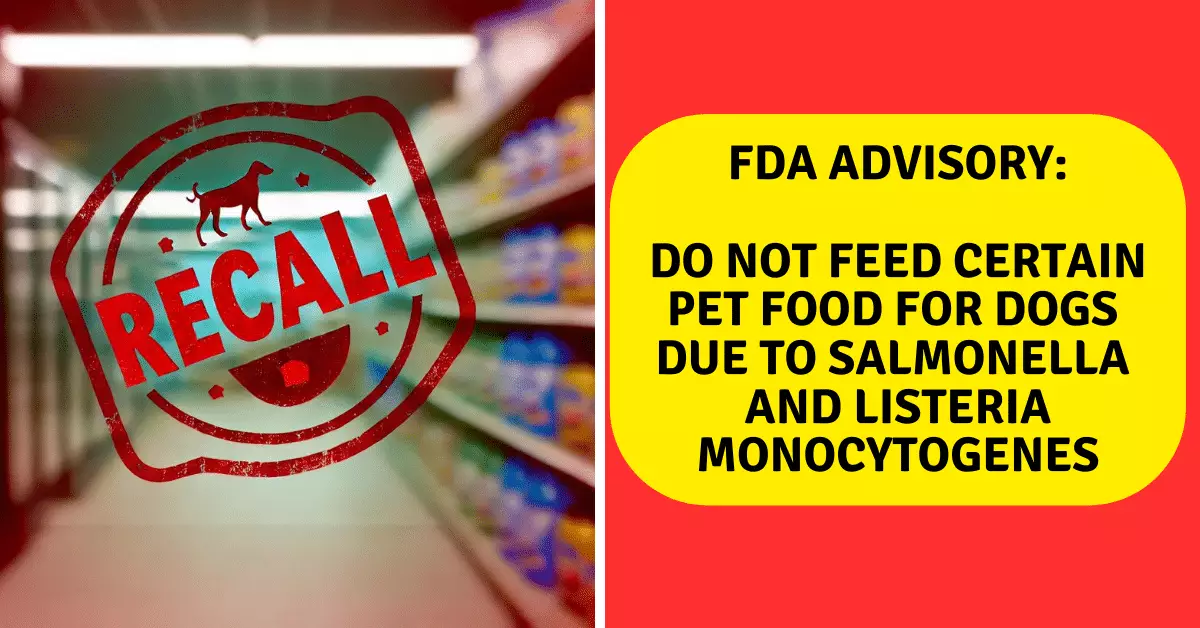The recent advisory issued by the U.S. Food and Drug Administration (FDA) has sent shockwaves through the pet owner community, particularly concerning specific products from Answers Pet Food, which are processed by Lystn LLC. The warning is due to troubling findings that have identified multiple pet food samples as carriers of dangerous pathogens, namely Salmonella and Listeria monocytogenes (L. mono). Such contamination poses a serious health risk not only to pets but also to humans who may come in contact with these products.
According to the FDA, the contamination was discovered following the investigation of reports from consumers stating that their pets fell ill after consuming certain pet food items. The affected items include the Answers Pet Food Raw Beef Detailed Formula, Raw Beef Straight Formula, and Straight Chicken Formula, all of which are sold in bulk frozen cartons. The focus on these products highlights a broader issue within the pet food industry – the susceptibility of raw food products to contamination. Unlike processed foods, raw diets, which some pet owners favor for their perceived nutritional benefits, can harbor bacteria that are detrimental to both animal and human health.
Salmonella infections can lead to severe gastrointestinal distress. Pets infected with Salmonella may display symptoms such as vomiting and diarrhea, which could be severe enough to induce hospitalization. Alarmingly, infected dogs can also act as carriers, shedding the bacteria without showing any outward signs of illness. Thus, a seemingly healthy dog could pose a risk to its human companions, particularly those with compromised immune systems or young children.
In light of this alert, the FDA has urged pet owners to immediately discontinue the use of these specific products and dispose of them safely in a secure container to prevent access by other animals or wildlife. Furthermore, the FDA emphasizes that consumers should not attempt to rehome or donate these contaminated foods, as this could further spread infection.
Pet owners are also advised to clean and disinfect any items or surfaces that may have come into contact with the contaminated food, including feeding bowls, utensils, pet bedding, and even locations in the home where the food was stored. Such thorough cleaning is crucial, considering that both Salmonella and L. mono can survive on surfaces long after the food itself has been removed.
It is fundamental that pet owners remain vigilant and recognize the importance of ongoing monitoring for signs of infection, both in their pets and within their own health. Typical symptoms of Salmonella infections in humans include diarrhea, abdominal cramps, and fever—symptoms that often can be mistaken for other illnesses, leading to potential underreporting.
The FDA’s findings underscore a significant public health concern that transcends the realm of pet ownership. The implications of salmonella and listeriosis extend into the complex dynamics of human-animal interactions, particularly for households where pets are considered family members. The risk posed by contaminated pet food illustrates the interconnected nature of our health; while we strive to provide the best nutrition for our pets, it is vital that we also prioritize food safety measures.
Given the growing popularity of raw pet food diets among pet owners, the responsibility to ensure the safety and quality of these products is more critical than ever. Pet food manufacturers must adhere strictly to hygiene and regulatory standards, ensuring that their products do not compromise the health of pets and their owners alike. As the market for raw and natural pet foods expands, ongoing vigilance from both manufacturers and consumers becomes imperative in preventing future outbreaks of such pathogens.
While the FDA’s alert serves as a grim reminder of the potential hazards associated with pet food, it also highlights the importance of consumer awareness and proactive health measures. By staying informed, disposing of compromised products, and maintaining stringent hygiene practices, pet owners can safeguard their own well-being as well as that of their furry companions. As we strive to offer the best for our pets, we must never overlook the essentials of food safety that are critical to our collective health. The ripple effects of food contamination can extend well beyond our pets, reminding us that vigilance and responsibility are paramount.


Leave a Reply